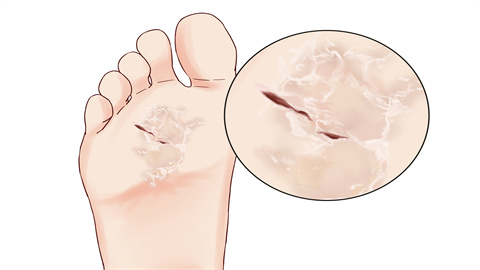Does diet affect fissured eczema?
Generally speaking, diet can have a certain impact on fissured eczema. A proper diet helps in the recovery process, while inappropriate eating habits may trigger or worsen symptoms. A detailed analysis is as follows:

Fissured eczema is a type of chronic eczema. Patients often develop cracks on the palms and soles during winter. The condition may be related to dry skin, allergies, long-term contact with irritants, genetic factors, or abnormal immune systems. Regarding diet, unhealthy eating habits may exacerbate symptoms of fissured eczema, whereas appropriate nutrition can help alleviate symptoms. Therefore, patients are advised to avoid high-fat foods, spicy and irritating foods, high-sugar products, and items containing preservatives. Alcohol consumption should also be avoided, as alcohol may aggravate eczema symptoms due to its irritating properties and may affect the immune system, hindering recovery.
Patients should choose bland, easily digestible foods in daily life, which can help reduce the burden on the gastrointestinal tract and prevent adverse effects on the skin. Maintaining adequate water intake helps relieve dry skin and thus alleviate eczema symptoms. Maintaining good lifestyle habits and a positive mindset also contributes to disease recovery.






